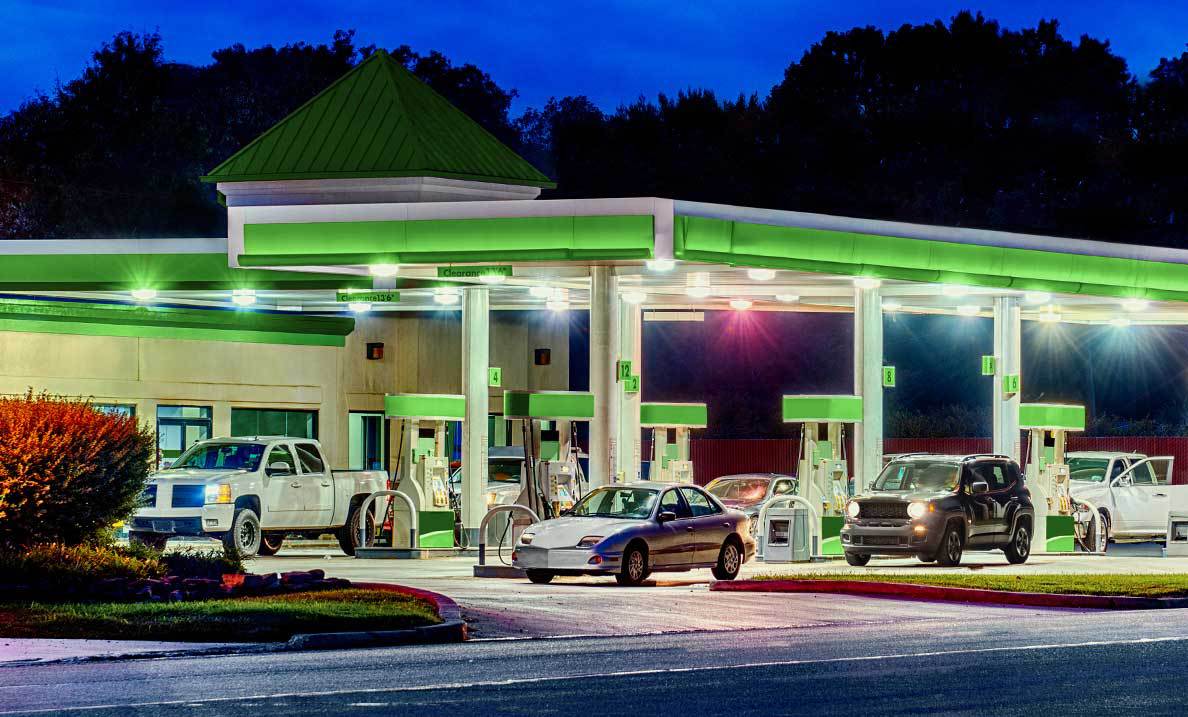Step inside any convenience store or roadside gas station across the United States, and it’s evident that the cannabis industry is pushing to sell its products in a manner similar to alcohol and cigarettes. And it’s no wonder. The convenience store industry is worth an estimated $38 billion a year, continuing to increase market share at a rate of a little over 3% since 2017. In fact, it’s growing faster than the entire US economy. These operations are big business for one reason, and it’s in the name. They’re convenient. Convenience stores are designed to provide the consumer with expedience through smaller selections. They reach quick shoppers who need to purchase snacks and related items outside normal business hours. As it stands, beer, wine, and tobacco products are their leading sellers. So, it makes perfect sense that this burgeoning industry has recognized a huge opportunity in selling legal cannabis, and they want in.
Although cannabis products from CBD to Delta 8 were once considered a retail novelty, they have undoubtedly reached mainstream appeal. The global hemp market is expected to hit nearly $17 billion by 2030, with CBD sales alone hitting the $8 billion mark a few years before. New Frontier Data shows that the controversial Delta-8 market reached $10 million in 2020 and has since become the fastest-growing segment of the cannabis market. All of these products have been legal nationwide since the passing of the 2018 Farm Bill, legalizing industrial hemp production for the first time since 1937. However, federal health regulators have refused to step in and help supervise the market. This has given way to a slew of problems in the hemp trade, from counterfeit merchandise to inaccurate labeling and dangerous toxins. The bulk of these shoddy cannabis products, as much as it pains us to say, are sold in your neighborhood convenience store.
Unfortunately, cannabis products sold in corner stores are not to be trusted. Producers of CBD and Delta-8 are not required to pass lab testing prior to distribution, which allows any product, regardless of how ineffective and perilous to one’s health it might be, to gain a retail spot behind the cash register. The average consumer can pinpoint this cruddy, pseudo cannabis as the item will not be accompanied by a Certificate of Analysis from a reputable, accredited lab like Kaycha Labs. Go ahead and ask the clerk for the COA; we’ll wait. If there’s no documentation, the product wasn’t tested for pesticides, bacteria, mold, and other dangerous contaminants. Furthermore, the labels on these items are often misleading, and the consumer simply isn’t getting what they pay for. Studies show that roughly only around 40% of the labels are accurate.
What’s worse is that while the consumer often purchases these products for their purported health benefits – reducing anxiety, sleep aid, etc. – using them is probably doing more harm than good. And the situation is only getting worse. Research indicates that mislabeling, false medical claims, and contamination are the most significant issues plaguing the market. These products are not of the same caliber as those sold in dispensaries in legal states, which are required by law to undergo rigorous testing protocols prior to landing on shelves. Therefore, the safety of the cannabis consumer is not guaranteed.
But convenience store cannabis isn’t going anywhere. In fact, some of the latest developments suggest that it’s only becoming more prevalent. Circle K gas stations in Florida recently announced plans to distribute THC-rich cannabis products in as many as ten stores. Although marijuana isn’t yet legal in the Sunshine State for recreational use, there is a flourishing medical marijuana program. Therefore, the Circle K locations will only be allowed to sell cannabis products to those with a medical marijuana certification. Yet, it’s tough to argue that the store isn’t making moves to sell cannabis to adults 21 and over once the state finally passes an adult-use law.
Weed is headed in the same direction as alcohol, which is readily available in most convenience stores across the country. Some believe the advent of gas station cannabis is destined to become even more popular since many folks still live under the lingering stigma of going to the dispensary. It will allow soccer moms to procure cannabis at the same time they fuel up or grab snacks for the kids on the way to the activity of the day. Consumers appreciate a good grab-and-go.
But safety shouldn’t suffer for convenience.
So how can we help make the concept of convenience store cannabis safer? Ultimately, federal support would help weed out unsavory cannabis producers. Until agencies like the US Food and Drug Administration intervene, gas station owners should opt to do business exclusively with reputable cannabis firms, those that still have their products tested for potency and safety regardless of the law. While other convenience stores may profit by selling shady products to the many faceless consumers who frequent those stops, the more reputable outlets could conceivably attract a stronger customer base by building a reputation for selling only the safest brands.
Consumers can also do their part to strengthen the sanctity of the market by only purchasing cannabis products accompanied by a Certificate of Analysis. If your local S-Mart doesn’t sell cannabis that’s tested for safety, go somewhere else. Eventually, those products will become dusty inventory.
Meanwhile, the cannabis industry should continue to work together toward establishing industry-wide testing standards that can be applied to every jurisdiction. X-Brand Delta-8 sold in California convenience stores should be the same as the X-Brand sold in a Florida gas station, just the same as the flavor and potency of Budweiser remains consistent anywhere it is sold nationwide. Perhaps once a set of product standards are addressed in the cannabis industry, then more reputable companies will seize lucrative merchandising opportunities, striking deals with the mega-market that is convenience stores and create a win-win situation for all parties involved.













